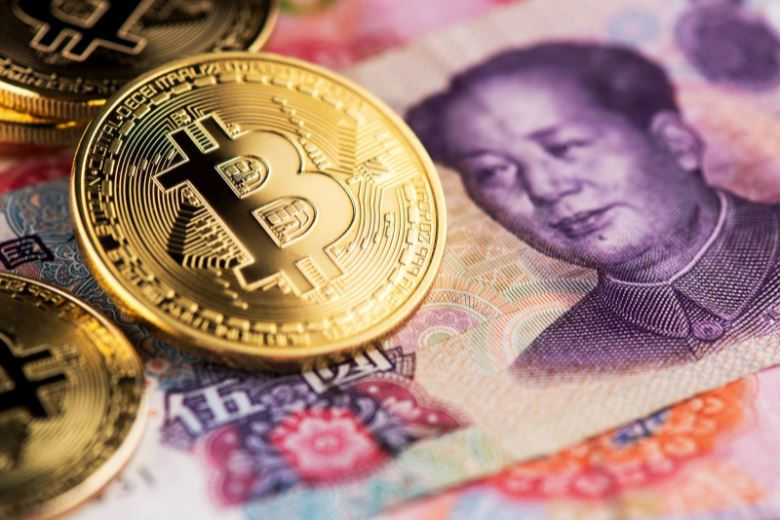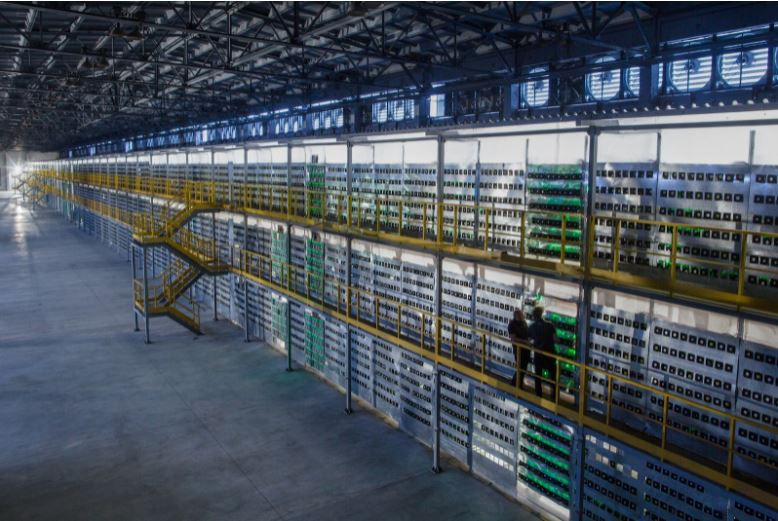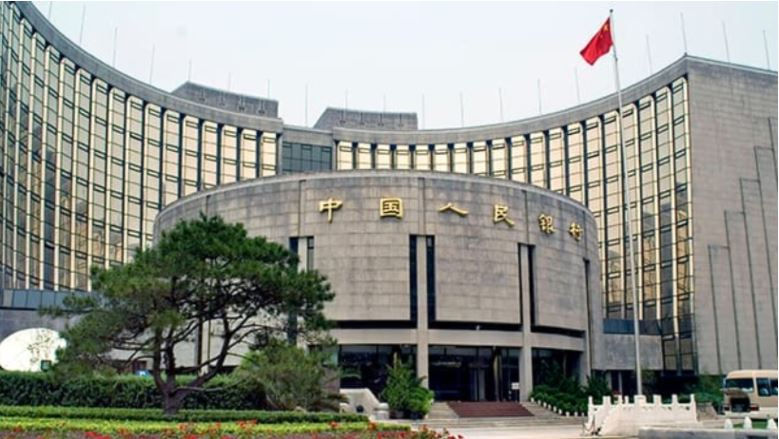China’s Mining Pools: How Cheap Electricity Turned the PRC Into a Crypto Superpower
- Maciek Grzymkowski

- May 9, 2021
- 6 min read

The cryptocurrency sphere is confusing and difficult to understand even without throwing the Chinese government into the mix. The blockchain technology that powers Bitcoin (BTC) and all of the other cryptocurrencies is still very young, and even some of the world’s top minds struggle to understand it. In spite of that, it still managed to make some people very, very rich within the eleven years of its existence. In fact, this kind of data is quite transparent thanks to the way blockchains and wallets work as well as how transactions are registered. As of the 5th of May 2021, there are 101,064 wallets worth over $1,000,000 dollars in Bitcoin. Forty-nine of these people can call themselves billionaires [1]. Keep in mind that these statistics only take Bitcoin into account. Factor in Ethereum, Cardano, the silly Dogecoin and other altcoins with some of the highest market capitalizations and you’re looking at a true financial revolution, and it’s still only in its infancy.
So how does the People’s Republic of China play into all of this? There are a couple reasons why anyone interested in blockchain technology and the future of money in general should closely watch Beijing’s moves in the crypto sphere. China is home to seven of the ten largest Bitcoin mining pools in the world, and is also heavily invested in the mining of Ethereum and other crypto assets. Although electricity prices in the PRC are on the rise and power is only 15% cheaper than in the United States, this was not the case even just a couple of years ago, allowing people to set up cryptocurrency mining operations relatively cheaply and easily, especially compared to countries in the West. The Chinese government is also working to set up a digital yuan to expedite the transition to a cashless society and sever the ties with the US dollar. The government’s cryptocurrency is already being tested by chosen citizens. Digitalizing the yuan, combined with the enormous mining pools located in China might lead to reshaping cryptocurrency markets across the globe, possibly leading to the centralization of the most popular coins, undermining the foundational principles of Bitcoin and Ethereum.
Cryptocurrency Mining and China's Climate efforts

China’s seven largest mining pools account for 76% of all of Bitcoin’s mining, or hashing power [2]. According to Cambridge researchers, the global BTC mining force uses up 121.36 terawatt hours per year, and that usage is projected to increase as the coins become more scarce and their value continues to rise [3]. From these numbers, it can easily be calculated that China’s mining pools consume approximately 92 TWh, which is more than the entire country of Kazakhstan (77 TWh as of 2019) [4].
This mining energy consumption is but a drop in the lake of China’s 6,510 TWh annual consumption (data for 2019), but it does play an important role in the PRC’s ability to fulfill its promise of achieving peak carbon emissions by 2030. Given that 40% of these pools are powered by coal, and how lucrative the business of mining Bitcoin has proven to be, these businesses may not be too keen on closing up shop and halting emissions within the next nine years.
There does seem to be a chance for a thorough “cleaning” of the Chinese mining pools, as in certain regions, clean energy starts actually becoming cheaper than coal-based power, making for a decent incentive for pools powered by fossil fuels to relocate their businesses elsewhere. Cheap electricity is what motivated Chinese cryptocurrency mining companies to outclass international competitors, so it’s quite possible that renewables becoming more cost-efficient than fossil fuels can push this industry in a more sustainable direction. Green-powered provinces like Xinjiang or Sichuan already account for the majority of Bitcoin’s hashing power in China, hopefully a sign of an even larger trend of environmentally-friendly crypto mining in the People’s Republic [5].
The Digital Yuan

Officially, the Chinese Communist Party’s stance on cryptocurrencies is rather negative, at least when it comes to how freely the general populace can accumulate, trade, and create digital forms of money on their own. In 2017, Initial Coin Offerings (ICO) fundraising processes (crucial for bringing new coins onto the market), were banned by the government. Even the mining pools themselves were affected by severe restrictions, motivated by the concern for energy, but also as an attempt to limit the public’s interest in decentralized forms of cash, unrestricted by the CCP’s influence [6]. Access to domestic and foreign exchanges was closed off, on top of the continued imposition of mining restrictions [7]. Despite making it really difficult, the PRC hasn’t come forward with a law or regulation that prohibits the holding and profiting off of Bitcoin or other coins. After all, the prevalence of mining pools and the sheer amount of the “digital gold” that’s under the control of China has the potential to be too lucrative to clamp down on like it did on many other areas of life in the past.
The Chinese Communist Party’s experience in dealing with cryptocurrency miners and their efforts to regulate the industry have resulted in a somewhat obvious development. Although the CCP doesn’t want its people to fall too hard for the decentralized currencies like Bitcoin or Ethereum, there is one cryptocurrency that the Chinese populace can, and according to the government, should use more frequently - the digital Yuan. China’s legal tender formulated in computer code instead of on paper is not only an easy and efficient way to untether the Chinese currency from the US dollar and set new rules on the global stage of digital national currencies, which with the way things are developing so far, seem to be the natural course of action for finance [8]. It’s already in the testing phase, with chosen citizens having gained access to it at the beginning of this year. Alongside the Social Credit System, a completely digital Yuan can also be the final steps for the Chinese government to permeate every single interaction (financial or otherwise) and achieve a level of total surveillance that was previously only imagined in speculative fiction novels.
Is China a threat to the Crypto Industry?

The fact that low electricity costs back in 2011 have led China to become the leader of the entire cryptocurrency industry that controls over 70% of Bitcoin’s hashing power could not have been predicted even by the CCP’s five-year-plan masterminds. This chain of events has led to China wielding a lot of power over not only the Chinese share of the crypto market but rather the entire industry, Bitcoin in particular. The mining pools currently operating in China may be a few separate companies, but just like in the case of any other business in the PRC, they are bound to answer to the central government. This opens up the avenue for China to wreak havoc on the blockchain in unimaginable ways.
One of the most frightening potential threats that China could carry out on Bitcoin is a “Gold-finger attack”. It would entail the Chinese government applying the combined power of their mining pools to take control of the entire Bitcoin system, or just kill it altogether [9]. This is not too likely to happen at the moment, but it is not out of the realm of possibilities should the Chinese Communist Party want to make a statement or derail the industry on a global scale. With so much hashing power in their hands, China could also use it to impose their will on developing countries that are increasingly looking into cryptocurrencies to provide the financial infrastructure they so desperately need. Given the CCP’s continued involvement in Africa, this last option would not be too shocking.
The Bigger Picture
Even if the Chinese government decides to do nothing sinister with the overwhelming power of the mining pools operating out of China, the sheer fact that the majority share of Bitcoin and Ethereum’s mining power is concentrated in one country runs contrary to the entire idea behind cryptocurrencies: the decentralization of finance. One country holding the majority of the hashing power of the entire system effectively centralizes it, rendering it dependent on the whims of that country’s government, who might one day use that power to improve the value of their own digital currency or use it as leverage against other state actors.
Whether that controlling state is China, the United States, or any other nation is a secondary matter. The goal of Bitcoin, and consequently of all of the other cryptocurrencies that came after it, was to fix the major flaws of fiat currency and strive to replace it with a fairer, more egalitarian store of value. With the way things are going right now, the replacement might actually be getting underway faster than expected, but the end result could be something even more flawed and prone to manipulation than the current system. This is precisely why the world should pay more attention to what China does with its majority share of the mining power of the world’s most valuable digital assets.



Comments